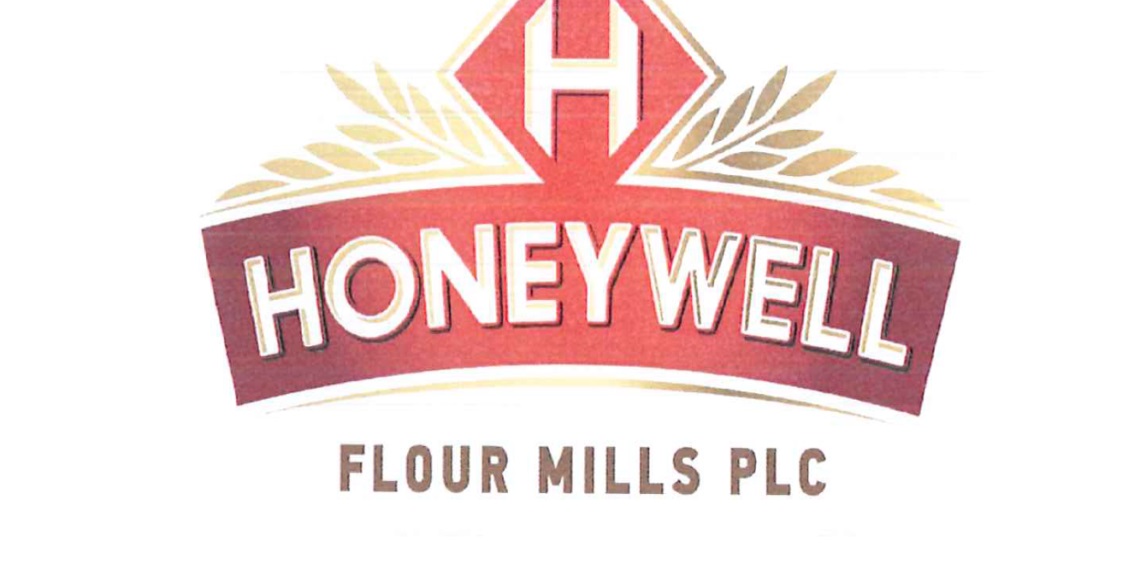Economy
CBN To Monitor Dubious Bank Customers

By Dipo Olowookere
Bank customers involved in fraudulent activities will now be placed under the radar of the Central Bank of Nigeria (CBN).
The country’s apex bank disclosed yesterday that it was working out regulatory framework that would enable it either blacklist these set of bank customers or put them on watch-list across the banking industry.
Speaking at the Finance Correspondents Association of Nigeria (FICAN) Bi-Monthly Forum in Lagos, CBN Director, Banking and Payment Systems Department, Mr Dipo Fatokun, said the Bank Verification Number (BVN) it recently introduced would be used to achieve this.
Mr Fatokun explained that the BVN involves capturing of customers’ physiological or behavioural attributes like fingerprint, signature among others which is coordinated by the CBN and banks in collaboration with the Nigeria Interbank Settlement System (NIBSS).
At the event hosted by the CBN, Mr Fatokun, who spoke on the theme ‘Recent Developments in the Electronic Payments System and Implications for Consumers of Electronic Payment Services’ disclosed that data from the apex bank showed that although e-fraud rate in terms of value dropped by 63 per cent last year, after the BVN introduction and improved collaboration among banks via the fraud desks, the total fraud volume rose significantly by 683 per cent within the year compared to 2014 figures.
He further disclosed that Nigeria experienced a total of 3,500 cyber-attacks with 70 per cent success rate and loss of $450 million within the last one year mainly through cross channel fraud, data theft, email spooling, phishing, shoulder surfing and underground websites.
“I want to assure you that the BVN has assisted us a lot in the banking system. It has assisted us to check frauds, and we are working on a framework, that will enable us if not to blacklist customers, because of some legal implications, but at least to watch-list a customer that is identified to have been fraudulent, or have done what he is not supposed to do across the banking sector,” he said.
He said the PSV 2020 strategy is aimed at providing a roadmap for efficient payments system infrastructure that would be nationally utilized and internationally recognized.
“The payments system plays a very crucial role in any economy, being the channel through which financial resources flow from one segment of the economy to the other. In setting out the objectives of the National Payments System (NPS), the goal is to ensure that the system is available without interruption, meet as far as possible, all users’ needs, and operate at minimum risk and reasonable cost,” he said.
He added that the BVN project is jointly undertaken by the CBN in collaboration with the Bankers Committee and remains a strategy of ensuring effectiveness of Know Your Customer (KYC) principles.
“Each Bank customer is given a unique identity across the Nigerian Banking Industry, including Nigeria bank customers in Diaspora,” he said.
The CBN Director said the number of BVN linked to customers’ accounts as at August 23, this year was 36.7 million while the total number of individual customers in the banks was reported as 59.9 million as at the same date.
“Any bank customer resident in Nigeria without a BVN would be deemed to have inadequate KYC while effort is on-going to ensure that customers of Other Financial Institutions (OFIs) such as Microfinance Banks (MFBs) & Primary Mortgage Institutions (PMIs) are brought into the system begin to get their BVNs,” he said.
Mr Fatokun said the e-Payment remains an initiative of CBN under the Payments System Vision 2020 as part of the overall FSS 2020 Strategy adding that one of the CBN mandates is the promotion of a sound financial system (Section 2 (d) of the CBN Act 2007).
He disclosed that Section 47(2) of the CBN Act 2007, stipulates that the CBN shall continue to promote and facilitate the development of efficient and effective systems for the settlement of transactions, including the development of electronic payment systems, adding that the promotion of a sound financial system entails active support for the effectiveness, efficiency and systemic safety of the payments system.
Related articles across the web
Economy
NGX Gains 0.37% as Investors Mop up Honeywell Flour, Nestle, Others

By Dipo Olowookere
The positive momentum seen at the Nigerian Exchange (NGX) Limited in the past few sessions was sustained on Thursday as the platform closed higher by 0.37 per cent.
This was buoyed by renewed appetite for Nigerian stocks, especially by offshore investors, who feel that the equities are currently undervalued.
Honeywell Flour ended the trading session as the best-performing stock, gaining 10.00 per cent to settle at N16.50, just as Nestle Nigeria chalked up 10.00 per cent to close at N1331.00.
Further, Beta Glass appreciated by 9.98 per cent to quote at N213.70, NPF Microfinance Bank gained 9.81 per cent to finish at N2.35, and Neimeth advanced by 9.77 per cent to N3.37.
The worst-performing stock for the day was Multiverse, which tumbled by 9.64 per cent to trade at N8.90, Coronation Insurance went down by 4.74 per cent to N2.01, Lasaco Assurance depreciated by 4.53 per cent to N2.32, May and Baker lost 3.82 per cent to sell for N12.60, and AIICO Insurance slipped by 3.61 per cent to N1.60.
At the close of transactions, 36 shares ended on the gainers’ table and 23 shares finished on the losers’ log, representing a positive market breadth index and bullish investor sentiment.
The consumer goods industry rose by 1.16 per cent during the session, the banking space increased by 0.20 per cent, the industrial goods index jumped by 0.18 per cent, and the commodity counter grew by 0.15 per cent, while the energy sector lost 0.18 per cent, with the insurance sector closing flat.
When the closing gong was beaten by 2:30 pm, the All-Share Index (ASI) was up by 408.31 points to 109,467.64 points from 109,059.33 points and the market capitalisation moved up by N257 billion to N68.801 trillion from N68.544 trillion.
Investors bought and sold 716.1 million equities worth N13.7 billion in 14,559 deals yesterday compared with the 531.2 million equities valued at N19.8 billion transacted in 14,870 deals at midweek, indicating a rise in the trading volume by 34.78 per cent, and a shortfall in the trading value and number of deals by 30.81 per cent and 2.09 per cent apiece.
FCMB topped the activity chart with the sale of 273.0 million stocks for N2.6 billion, Fidelity Bank transacted 43.5 million shares valued at N896.7 million, Caverton exchanged 35.1 million equities worth N144.7 million, AIICO Insurance traded 33.9 million shares for N54.3 million, and FTN Cocoa sold 26.4 million equities worth N63.3 million.
Economy
Nigeria’s Inflation Slows to 23.71% in April 2025

By Adedapo Adesanya
• Strengthens case for MPC to cut or pause interest rates next week
Nigeria’s headline inflation rate eased to 23.71 per cent in April 2025, reflecting a 0.52 percentage point decline from the 24.23 per cent recorded in March.
This was disclosed in the latest Consumer Price Index (CPI) Report released by the National Bureau of Statistics (NBS) on Thursday.
The report also showed a decline in the food inflation index by 0.53 per cent to 21.26 percent in April from 21.79 per cent in March.
The decrease was attributed to the reduction in the prices of staple food items, including maize (corn) flour, wheat grain, dried okro, yam flour, soya beans, rice, bambara beans, and brown beans.
According to the NBS: “The Consumer Price Index (CPI) rose to 119.52 in April 2025, reflecting a 2.18-point increase from the preceding month.”
“On a year-on-year basis, the headline inflation rate was 9.99% lower than the rate recorded in April 2024 (33.69 per cent). This indicates a significant decrease compared to the same month in the preceding year, though with a different base year of November 2009 = 100,” it added.
The report further noted that the food inflation rate on a year-on-year basis stood at 21.26 per cent in April 2025, marking a 19.27 per cent reduction from the 40.53 per cent achieved in April 2024. The NBS attributed this sharp decline to a change in the base year used for calculations.
On a month-on-month basis, food inflation was recorded at 2.06 per cent in April 2025, a slight drop of 0.12 per cent from 2.18 per cent in March 2025.
“The decrease can be attributed to the reduction in the average prices of key food items like Maize Flour, Wheat Grain, Okro Dried, Yam Flour, Soya Beans, Rice, Bambara Beans, and Brown Beans,” the report added.
The development increases the chances of the Central Bank of Nigeria (CBN) to cut or pause interest rate at its next Monetary Policy Committee (MPC) meeting on May 20.
The MPC of the apex bank has only four months of data to guide its decision after the NBS overhauled the consumer price index for the first time in 16 years in January and changed the base year to 2024.
Business Post reports that at the last meeting, the CBN paused the key interest rate at 27.50 per cent.
Economy
Mamuda Group Plans $50m Investment in Ogun, to Employ 3,000

By Modupe Gbadeyanka
A Kano-based company, Mamuda Group Nigeria Limited, is planning to build a factory in Ogun State worth $50 million.
The firm has tentacles in the food, personal care, and agro-processing sectors through its subsidiary, Mamuda Beverages.
Already, the company has acquired an expanse of land for its plant in Ogun State, with the foundation laying scheduled for next month, according to the Governor of Ogun State, Mr Dapo Abiodun, who said this is part of ongoing efforts to make the state a top destination for industrial growth in Nigeria.
“We are pleased that our administration’s commitment to creating a business-friendly environment is attracting major investors,” he stated, noting that, “Our open-door policy and investor support structures continue to set us apart.”
Business Post learned that Mamuda Group chose the South-West state for its new factory because of its strategic location, bordering Lagos and connecting to Ibadan and Benin, making it ideal for regional distribution and production.
The organization currently employs over 13,000 people across sectors such as leather exports, agro-sack production, confectionery, soft drinks, and personal care.
With this new development in Ogun State, the company plans to begin with 1,500 employees, growing to 3,000 as operations expand, aligning with the state government’s goal of creating quality jobs and strengthening the state’s manufacturing base.
Governor Abiodun said to further support growth, his administration has developed key infrastructure like Nigeria’s best-equipped airport and a licensed dry port linked to the rail line.
According to him, these facilities will streamline importation and logistics, cutting delays and costs, noting that with tools like the Business Environment Council, the state government is not only attracting investment, but building lasting confidence in Ogun State’s economic future.
-

 Feature/OPED5 years ago
Feature/OPED5 years agoDavos was Different this year
-
Travel/Tourism9 years ago
Lagos Seals Western Lodge Hotel In Ikorodu
-

 Showbiz2 years ago
Showbiz2 years agoEstranged Lover Releases Videos of Empress Njamah Bathing
-

 Banking7 years ago
Banking7 years agoSort Codes of GTBank Branches in Nigeria
-

 Economy2 years ago
Economy2 years agoSubsidy Removal: CNG at N130 Per Litre Cheaper Than Petrol—IPMAN
-

 Banking2 years ago
Banking2 years agoFirst Bank Announces Planned Downtime
-

 Sports2 years ago
Sports2 years agoHighest Paid Nigerian Footballer – How Much Do Nigerian Footballers Earn
-

 Technology4 years ago
Technology4 years agoHow To Link Your MTN, Airtel, Glo, 9mobile Lines to NIN

























